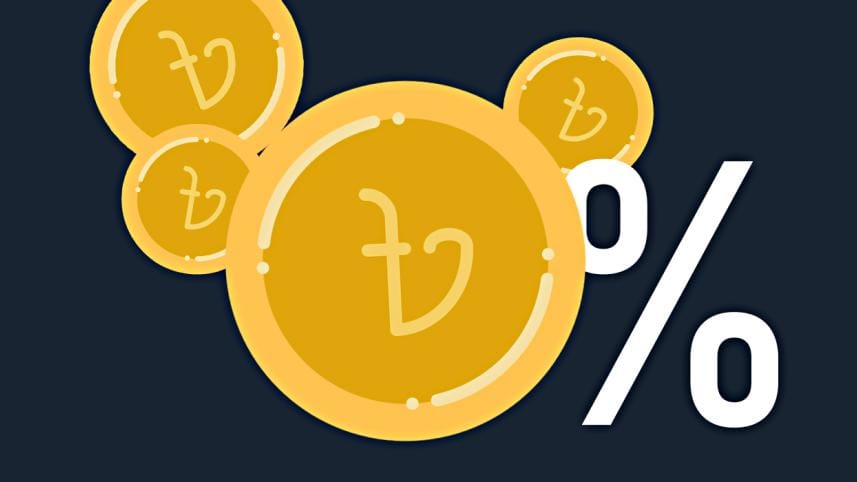Bangladesh Bank cuts repurchase rate and reserve ratio to inject liquid cash into economy

The central bank today cut both the policy rate and cash reserve ratio (CRR) once again to inject liquid funds into the market to push through the ongoing economic fallout stemming from the coronavirus pandemic.
The regulator of the banking sector reduced banks' CRR by 100 basis points to 4 percent, a move that would inject about Tk 12,800 crore into the economy, said a central bank official who has a direct link to the matter.
The cash reserve ratio determines the portion of customer deposits that commercial banks must keep as a reserve with the central bank authority.
Using the reserve ratio, the central bank can, in effect, control the amount of liquid cash that circulates in the economy -- a higher CRR means the banks must hold higher reserves and thus tighten the flow of cash.
Bangladesh Bank also slashed the policy or repurchase agreement rate (known as the repo rate) by 50 basis points to 5.25 percent to make funds cheaper for banks.
The reduced repo rate means banks can get more access to central bank funds if needed at a lower rate of return, thus enabling commercial banks to tackle the impending financial recession as efficiently as possible.
In Bangladesh, the repo rate is the central bank policy rate (CBPR), which is the rate that is used to implement or signal the monetary policy stance. Under the repo programme the repayment duration of the repo is between one day and 28 days as per the central bank's regulations.
The new CRR would take effect from April 12, while the lower repo rate would be effective from April 15, according to a central bank notice sent out to all lenders.
"The new instructions will help implement the bailout packages declared by the prime minister in the wake," the central bank said its notice.
The global Covid-19 pandemic has had an adverse impact on the country's economy and the latest measures will ensure the availability of liquid funds in the money market, it said.
The majority of the banks are facing cash withdrawal pressure in recent days as people want to keep cash in hand during the crisis period.
On March 23, the central bank cut the CRR by 50 basis points to 5 percent and the repo rate by 25 basis points to 5.75 percent.
The central bank supplied money around Tk 6,400 crore at the first phase by way of cutting the CRR.
But, the central bank has been forced to ease both the monetary tools once again today due to the ongoing liquidity crunch in the banking sector, the BB official said.
Banks will have to maintain the statutory liquidity ratio (SLR) and CRR against their total depositors' funds.
Every bank now maintains 13 percent SLR of their deposits under Bangladesh Bank guidelines.
The central bank will have to take more policy measures to implement the bailout package of Tk 72,500 crore as banks will have to provide Tk 50,000 crore of the stimulus programme from their own sources.



 For all latest news, follow The Daily Star's Google News channel.
For all latest news, follow The Daily Star's Google News channel.
Comments